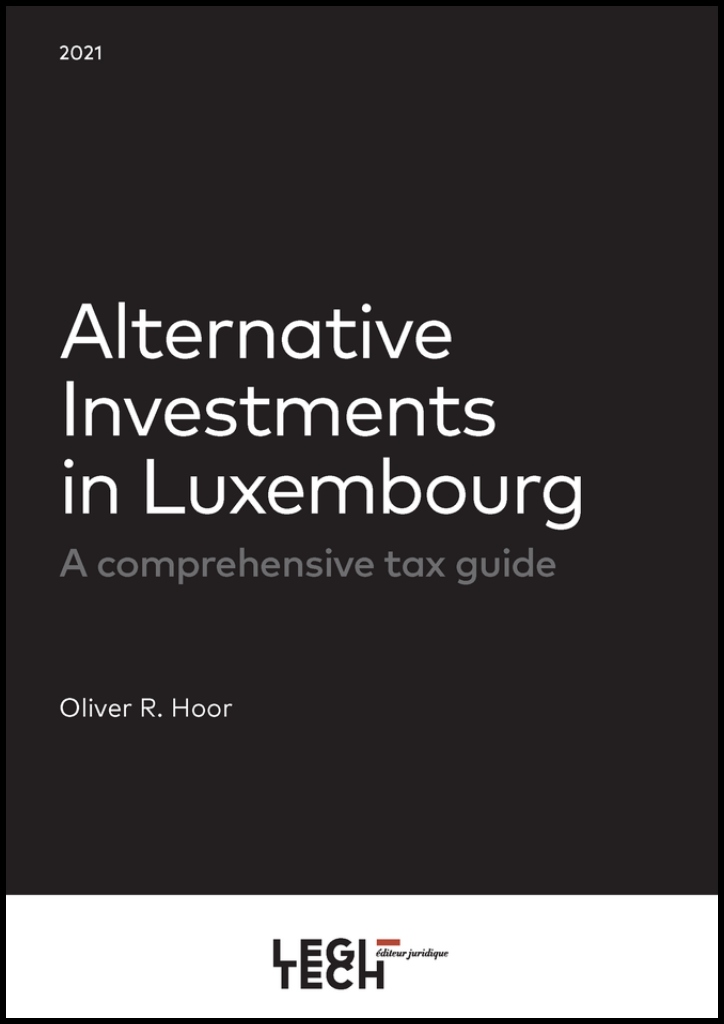Discover a practical guide which focuses on the tax treatment of Luxembourg companies involved in alternative investments
Over the last few decades, Luxembourg has emerged to the location of choice for alternative investments (private equity, private debt, real estate, infrastructure, etc.) in and throughout Europe. The attractiveness of Luxembourg is linked to a host of factors which have made it an essential part of the global financial architecture.
These factors include a flexible and diverse legal, regulatory and tax framework, investor and lender familiarity with the jurisdiction, the availability of a qualified, multilingual workforce, the existence of a deep pool of experienced advisers and service providers, a large tax treaty network, an investor-friendly business and legal environment, and political stability, to name a few.
However, while the Grand-Duchy continues to be attractive for international investors and asset managers, the climate in the international tax arena has changed significantly over the last few years. The OECD Base Erosion and Project Shifting (“BEPS”) Project and related initiatives at EU level resulted in substantial tax law changes across Europe and the rest of the world.
In the European Union, the transposition of two Anti-Tax Avoidance Directives (“ATAD” and “ATAD 2”) resulted in the implementation of a number of anti-abuse provisions such as the interest limitation rules, the hybrid mismatch rules and a general anti-abuse rule.
While substance has always been an important topic for Luxembourg companies which are frequently involved in cross-border investment and business activities, the focus on economic substance only increased throughout and following the OECD BEPS Project. Therefore, it is crucial to equip Luxembourg companies with an appropriate level of substance.
Oliver R. Hoor is a Partner in the International and Corporate Tax department of ATOZ.
A tax professional since 2003, Oliver has experience in Luxembourg and international taxation with a focus on alternative Investments (private equity, real estate, sovereign wealth funds, hedge funds), mergers & acquisitions and multinational groups. Oliver advises clients on all direct tax aspects regarding deal structuring, maintenance, reorganisations and exit planning.
He is Head of Transfer Pricing and the German Desk. Oliver is further a member of the tax working groups of the Association of the Luxembourg Fund Industry (ALFI) and the Luxembourg Private Equity Association (LPEA).
Oliver is the author of more than 300 articles and books on Luxembourg and international taxation including Transfer Pricing and related documentation requirements, the OECD Base Erosion and Profit Shifting (“BEPS”) Project and the EU Anti-Tax Avoidance Directives (ATAD 1 & 2), reporting obligations of tax intermediaries (DAC 6), current initiatives of the EU Commission in the field of direct taxation (ATAD 3, BEFIT, DEBRA, SAFE, DAC 8, …), the OECD Model Tax Convention and Tax Treaties, EU Law and the State Aid investigations of the EU Commission. He is also a regular speaker at conferences as well as a lecturer with Legitech and ILA.
Oliver is qualified as a Chartered Accountant in Luxembourg (“Expert-Comptable”) as well as a certified German tax adviser (“Steuerberater”). He holds a post-graduate degree in Luxembourg Tax and a degree in Business Administration with a major in Tax from the University of Applied Sciences of Trier (Germany).

